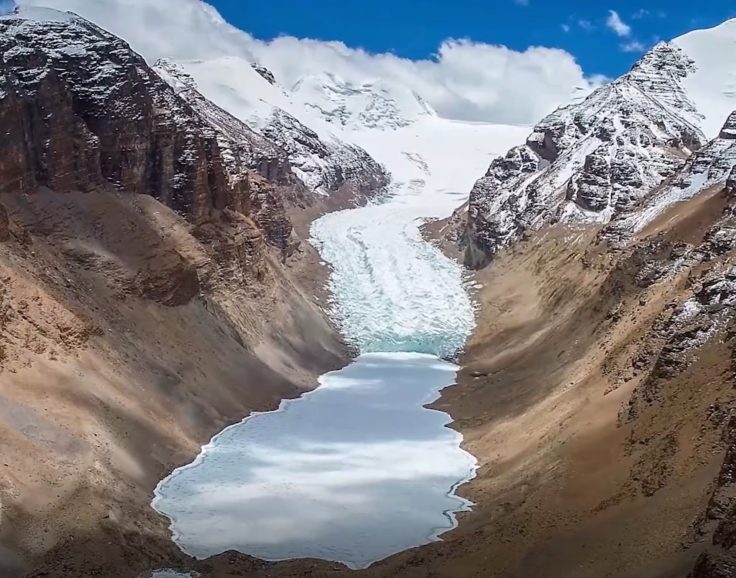The Arctic, the Antarctic, and snow-covered mountain ranges sustain people’s livelihoods and ways of life. Arctic sea ice provides critical support for local communities and sustains the health of the regional environment. Meltwater from mountain glaciers and seasonal snow sustains hundreds of millions of people, providing hydropower, essential drinking water, and irrigation for crops. Antarctica supports a thriving fishing industry and also holds unexplored opportunities, such as useful molecules for industrial processes and medicine
Global changes threaten these resources and services now and in the future. The coming decades will see the Arctic Ocean free of sea ice in the summer for the first time, as well as growing industrialisation. Mountain glaciers and snow cover are retreating at unprecedented rates. Changes in ice and seasonal snow threaten essential water supplies, raising the risk of drought and water conflict.
Over-fishing and climate change are impacting the world’s fish stocks and, as reduced sea ice cover opens new waters, policy makers urgently need data to sustainably manage polar fisheries. At the same time, there is growing interest in novel proteins and cold-adapted enzymes for various applications. To achieve net zero while sustaining current lifestyles, we need to find new approaches to everyday practices – cold-adapted enzymes could play a significant role in delivering industrial or domestic activities at lower temperatures. In addition, antimicrobial resistance is expected to kill 10 million people per year by 2050; new anti-microbials are urgently needed and extreme environments, such as the Polar Regions, hold potential for undiscovered sources of novel antimicrobials.
Deriving such sustainable benefits from the polar and mountain environment requires robust assessments to guide decisions on how to manage and use these frozen regions, and on how to adapt to changes there.

British Antarctic Survey scientists have worked in partnership with local and indigenous Arctic communities to explore socio-economic transitions driven by changes in the regional climate. Our scientists have used radar systems on helicopters to quantify the meltwater resources of Himalayan glaciers. Our Antarctic fisheries research applies a “whole ecosystem” approach. This brings together expertise in fisheries and fished species, predators and prey of these species, and the processes underpinning key ecosystem services, especially biogeochemical cycling, nutrient dynamics, and carbon export. We have the expertise and infrastructure required to identify beneficial novel proteins and cold-adapted enzymes.
The challenge:
To provide the robust evidence decision-makers and societies need both to adapt to changes in the world’s frozen environments and to limit the associated socio-economic risks.
Our science targets:
- Assess the societal challenges and opportunities in the changing Arctic, including the impact of sea ice loss on ecosystems, and the interplay between climate change and increasing industrialisation
- Determine how much water the world’s mountain glaciers will continue to provide as the climate changes; do this using novel observations and newly-refined models
- Deliver critical information to support sustainable management of polar and other fisheries, including impacts of management decisions on connections and feedbacks with carbon and other nutrient cycles
- Identify novel proteins and cold-adapted enzymes useful in the food industry, as industrial catalysts, for cryopreservation, and as therapies